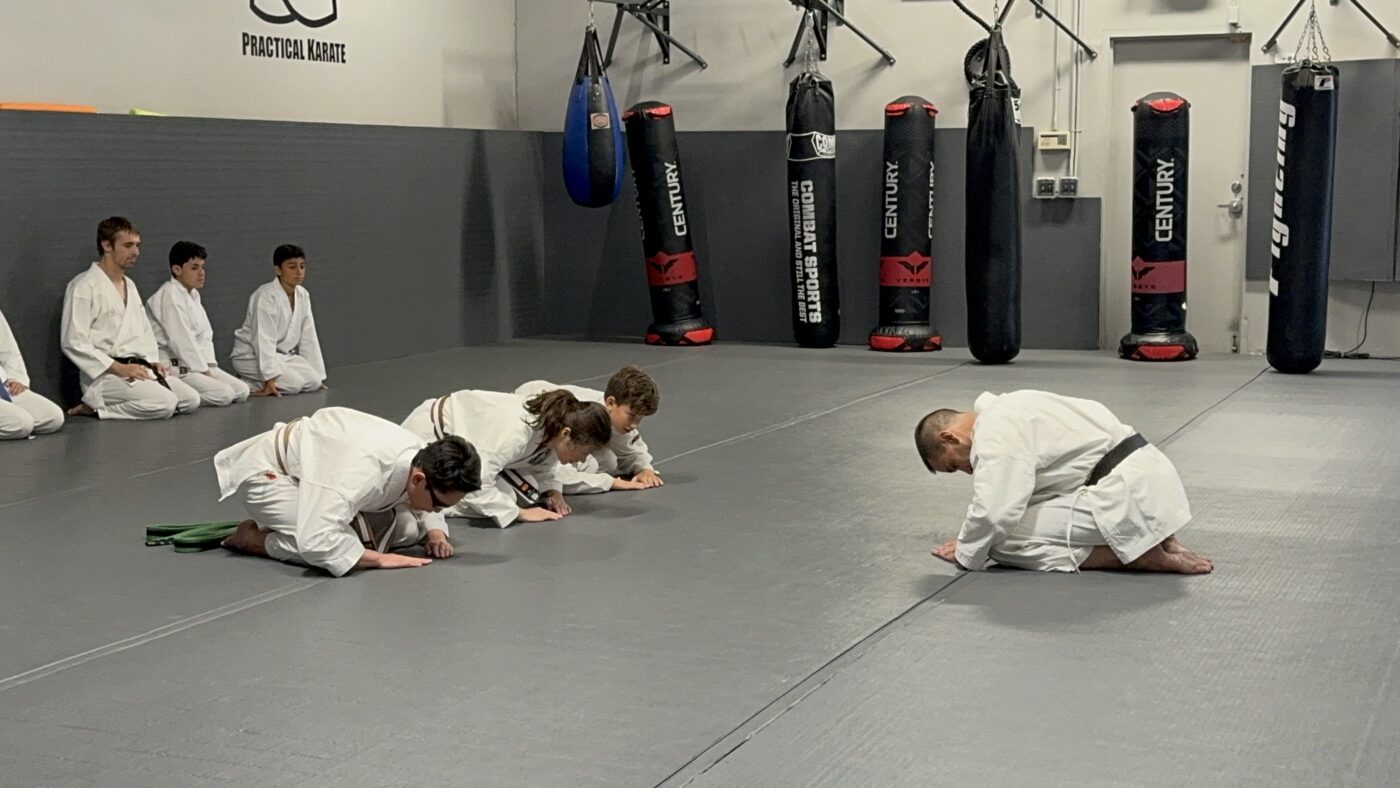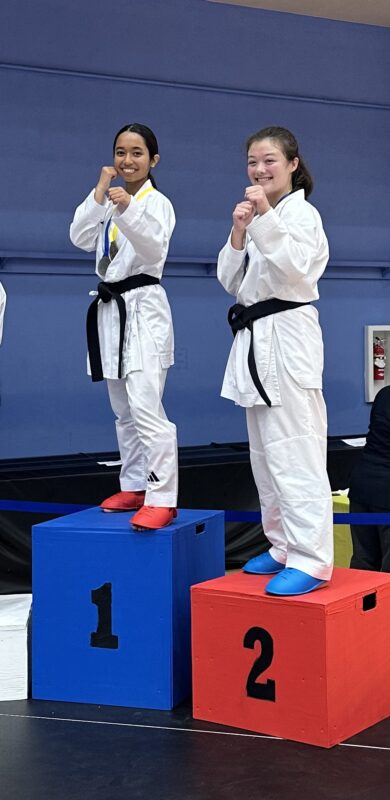Martial Arts
There Are No Shortcuts to Self-Confidence
In today’s fast-paced world, it’s easy to be tempted by promises of quick fixes, instant results, and effortless success. This mindset has even spilled over into one of the most personal aspects of our lives: self-confidence. From viral self-help hacks to affirmations and social media filters, the message seems to be that confidence can be downloaded, bought, or faked until it magically becomes real. But the truth is far more grounded—and far more powerful. Real self-confidence cannot be hacked. It is earned. And the path to it is paved with discipline, effort, perseverance, and the satisfaction of real achievement.
The Illusion of Instant Confidence No Self-Confidence
Self-confidence is often misunderstood. Many believe it’s a feeling you simply “get” or a trait that some people are just born with. Others think it can be faked—”act confident, and you’ll be confident.” While positive self-talk and presence certainly have value, these tools are only effective when they’re grounded in something deeper. Without substance, they ring hollow.
True confidence isn’t about pretending to be fearless or impressive. It’s the quiet, grounded belief that you can handle challenges, bounce back from failure, and trust yourself in unfamiliar situations. This belief doesn’t arise overnight. It grows from experience and internal validation—both of which require work.
Discipline: The Foundation of Confidence
Discipline is the cornerstone of all personal growth. It’s the commitment to show up, stay focused, and do what needs to be done—even when it’s hard, boring, or inconvenient. Without discipline, motivation quickly fades, and goals remain out of reach.
A disciplined person builds habits that accumulate small wins over time. Waking up early to train, sticking to a routine, following through on responsibilities—these actions send a message to the subconscious: “I am someone who can be counted on. Even by myself.” That belief builds a core of self-trust, which is one of the most essential elements of true confidence.
Discipline also teaches boundaries—knowing when to say no to distractions or temptations. This strengthens mental resolve and cultivates the respect that comes from doing hard things by choice, not necessity.

Effort: The Work That Shapes You
While discipline sets the structure, effort brings it to life. Confidence grows when you apply yourself fully—not just going through the motions but truly striving to improve, push limits, and move forward. It is through honest, consistent effort that we discover what we’re capable of.
Putting in effort doesn’t mean always winning or succeeding. Some of the most formative moments in life come from working hard and falling short of our goals. These moments teach humility, resilience, and the strength to keep going. More importantly, they offer proof that you can endure difficulty—and that proof is invaluable to confidence.
Every time you give your best, you reinforce the belief that your effort matters. And that belief creates a self-fulfilling cycle: more effort leads to greater growth, which in turn leads to increased faith in your ability to succeed.
Perseverance: Confidence Forged in Challenging your Self-Confidence
Anyone can feel good when things are going well. But absolute confidence shows up when nothing seems to be working when you’re tired, discouraged, and tempted to give up. That is when perseverance comes into play.
Perseverance is the act of continuing despite difficulty, failure, or delay in achieving one’s goals or objectives. It’s the quiet refusal to let setbacks define you. And it’s in these moments that your sense of self becomes truly unshakeable.
When you persevere, you’re not just moving forward; you’re telling yourself a story that shapes your identity: “I don’t give up. I don’t quit. I can handle hard things.” This story becomes the bedrock of your confidence. You stop fearing adversity because you’ve been through it and come out stronger.
Moreover, persevering teaches emotional stability. You learn to tolerate discomfort, to manage frustration, and to stay focused on long-term goals in a world obsessed with instant gratification.
Achievement: The Validation of Effort
Discipline, effort, and perseverance are not ends in themselves. They culminate in achievement—the tangible results of your work. Whether it’s mastering a skill, reaching a fitness goal, earning a promotion, or simply completing something you once thought you couldn’t, achievement reinforces self-confidence like nothing else can.
Achievement is important because it serves as proof. Proof that you are capable. Proof that your actions matter. Proof that you are not dependent on the opinions of others to know your worth.
Each milestone you reach becomes a pillar in your foundation. You can look back and say, “I did that.” And those accomplishments—big or small—become internal references when doubt creeps in. They’re reminders that confidence isn’t something you hope for; it’s something you build.
Importantly, achievement doesn’t mean perfection. It means progress. The act of finishing something meaningful or making a breakthrough after hard work matters far more than being the best. The confidence gained from hard-earned personal victories is often more sustainable than the fleeting praise that comes from external accolades.
Putting It All Together
The journey to self-confidence is not glamorous. It’s not linear. It often includes setbacks, plateaus, and moments of doubt. But the process though slow and demanding is incredibly empowering. The beauty of this path is that it doesn’t require talent, luck, or permission. Anyone can walk it. All it requires is the willingness to do the work.
Here’s how the cycle works:
- You choose discipline—and start showing up consistently.
- You apply effort—doing your best, even when results are not guaranteed.
- You practice perseverance—continuing despite setbacks or discouragement.
- You experience achievement—big or small wins that prove your growth.
- You gain confidence—earned through experience, not illusion.
And then the cycle continues. The more you walk it, the more momentum you build. The more self-assurance you develop, not from pretending, but from knowing—you’ve been there, you’ve done the work, and you can do it again.
Confidence is not a gift. It’s a result. It cannot be bought, borrowed, or begged for. Confidence must be earned through a commitment to self-discipline, sustained effort, perseverance in the face of challenge, and the quiet dignity of real accomplishment.
In a world full of shortcuts and shallow validation, choosing the long road may seem outdated or even foolish. But those who walk it know a truth that no shortcut can offer: the deepest and most lasting confidence comes from becoming the kind of person you can trust.
Not because someone told you you’re good enough—but because you proved it to yourself. And that is a kind of confidence no one can take away.


